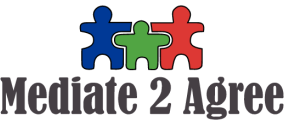 People deal with conflict or change in different ways. Some people are extremely emotional some others keep everything bottled up inside. Some get very angry and some are very sad. Some listen to their heart and some, more logical beings, think with their brains. Some want to talk about it in order to feel better and some others prefer ignoring the issues hoping they will go away.
People deal with conflict or change in different ways. Some people are extremely emotional some others keep everything bottled up inside. Some get very angry and some are very sad. Some listen to their heart and some, more logical beings, think with their brains. Some want to talk about it in order to feel better and some others prefer ignoring the issues hoping they will go away.
Now, I’m not talking about the intricate differences between men and women although the book “Men are from Mars, Women are from Venus” does describe what I mention above to perfection. I’m talking about people in general even people within the same gender.
So considering all this plethora of personalities out there you can imagine how difficult it can be, especially in situations of extreme emotions, such as anger, resentment, frustration, deep sorrow, grief, for family members, friends, colleagues to communicate with each other in a calm, rational, sensible way or to agree on important decisions regarding their loved ones.
So how does Facilitation help?
Facilitating communication is more than just listening and its more than just leading a conversation. A good facilitator knows when to stop talking and when to listen to not only what is being said but also to what is not being said
As a facilitator, I work with people, families, co-workers who are having a hard time discussing sensitive issues by guiding the communication process in such a way that those conversations can happen in a constructive and successful manner.
When I’m working with families, in the case for example where it involves an older adult, I meet with each individual family member first, this includes of course the older adult, in order to understand:
– Where they are coming from, their fears and concerns.
– Where they fit in, what their role is within the family dynamic.
– What interests lies behind their position if any.
I listen to their interpretation of the situation but we also discuss possible solutions, we talk about scenarios, we look at options in order to eventually come up with a plan that every other member in the family can embrace. I truly believe that people feel acknowledged and valued when others validate their feelings. Allowing people to address their emotions also helps them move beyond the situation at hand in an effective way. Ignoring those feelings is what creates distance and ultimately it’s what cripples the communication process.
I then gather all the family members together in order to discuss the different proposals that were brought up during on individual sessions. I encourage all parties to:
– Truly listen when others are sharing ideas and not to think of what they want to say next.
– To listen with an open mind.
– To not interrupt and wait for their turn to speak.
– To repeat what is being said in order to give the speaker a chance to clarify.
This inclusive process gives families an opportunity to come up with achievable plans. Making sure everyone gets a chance to contribute their ideas and participate in the final resolution will result in a plan that meets everyone’s needs and expectations.
Here are some situations where facilitation has help families just like yours:
– Older parent is diagnosed with mild dementia and adult children don’t agree on how this new life transition for their parent should be handled.
– Older parent is living on their own but health is deteriorating and children want older parent to start considering selling their home, moving to a retirement home or assisted living facility. Problem is older parent doesn’t see the need to do so and in some cases is right, in-home care assistance can be an option.
– Older parent is living with adult child but health condition is deteriorating and adult child can no longer handle all their needs. Options need to be discussed.
– Older adult child moves back in with older parent but older parent is in no financial or health condition to provide for him/her. Other siblings are concerned but no one gets along so communication is broken.
– Older parent is diagnosed with mild Alzheimer’s disease but can still function with in-home care assistance but no one is available to make those arrangements.
– Older adult has just been diagnosed with mild dementia but is in complete denial and refuses all help from family.
– Older adult driving skills are deteriorating but he/she still refuses to give up driving.


 Qu’est-ce qu’un Plan Parental?
Qu’est-ce qu’un Plan Parental?